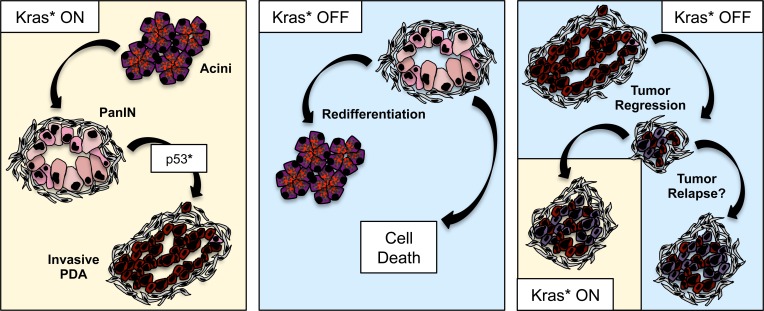Figure 1.
Oncogenic Kras in pancreatic cancer progression and maintenance. Oncogenic Kras drives PanIN formation and—in combination with loss or mutation of tumor suppressors such as p53—progression to invasive adenocarcinoma. Inactivation of oncogenic Kras at the PanIN stage leads to regression of the lesions, through a mechanism that includes cells death as well as re-differentiation of PanIN cells to acini. Inactivation of oncogenic Kras in metastatic tumor leads to tumor regression; however, a subset of tumor cells survive Kras inactivation, possibly entering a dormancy status, and setting the stage for tumor relapse.

